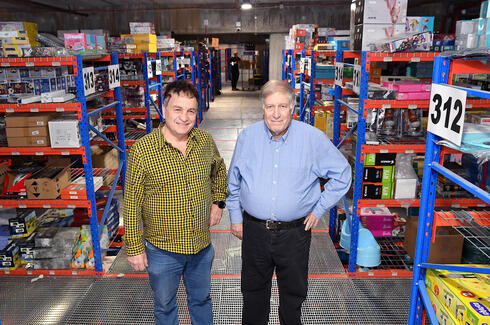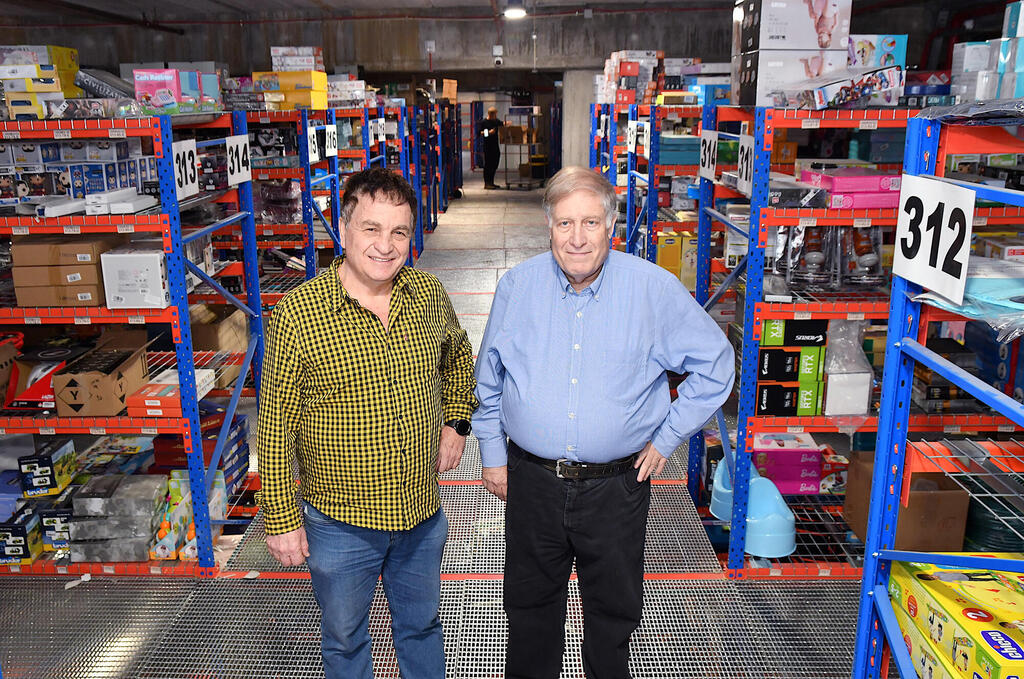
KSP’s founders exit with $195 million as institutional investors take a bigger stake
Migdal, More, and Altshuler Shaham set to acquire 30% of the online retail giant in a deal valuing the company at $650 million.
Institutional investors are placing their confidence in KSP as the e-commerce platform finalizes an exit deal valued at 700 million shekels ($195 million) for its founders. Calcalist has learned that Migdal and More Investment House will purchase 15% of the chain's shares, while Altshuler Shaham will purchase an additional 15%, becoming the largest investor in the chain. The purchase is being made at a valuation of approximately NIS 2.33 billion ($650M).
The division of shares between Migdal and More has not yet been finalized. Migdal is expected to hold around 8%-9%, while More will likely take a 6%-7% stake. It may take several days for the deal to be signed, as it still requires approval from the various committees of the three institutional investors and the completion of legal documentation. The process is being managed by Leader, led by Shay Ben Yakar.
When Calcalist first reported the founders' intention to sell, the discussions centered on a 25% stake sale at a valuation of NIS 2 billion. However, data presented to institutional investors during a company-led roadshow convinced them of greater potential. Other interested parties included Clal Insurance and Poalim Equity, but they were unwilling to meet the proposed valuation. Phoenix and Harel did not submit offers.
The sale will be an outright exit, meaning the proceeds will go directly to the controlling shareholders and founders, Yaakov Priluk and Zeev Sorkin, who will each receive 350 million shekels ($97 million).
Investment houses Altshuler Shaham, Migdal, and More appear confident that the company’s expansion into new business areas will support its continued growth. KSP had a record year in 2024, largely because the war and the suspension of foreign airline flights kept Israeli consumers in the country, boosting online shopping. KSP emerged as a key beneficiary, particularly as a substitute for duty-free shopping.
To maintain growth in 2025, despite an expected return to normal travel patterns, KSP plans to emphasize sectors such as perfumes—importing top-brand fragrances and selling them at lower prices than official importers. Additional growth engines include pet food and Lego products, which KSP offers online at competitive prices. The company’s 2024 profit is estimated at nearly NIS 150 million, and its low debt levels contribute to its strong profitability. Another aspect that appealed to investors is KSP’s logistics operations.
Related articles:
Market estimates suggest that Altshuler Shaham, Migdal, and More will receive priority when KSP moves forward with an IPO. In 2021, the company attempted to go public on the Tel Aviv Stock Exchange at a valuation of NIS 1.4 billion but withdrew due to unfavorable market conditions. Now, KSP is returning with a valuation 67% higher. The company faces growing competition from retailers such as Shufersal and Super-Pharm, which are expanding their online sales of non-food products.
KSP operates 62 branches offering a wide range of products, including refrigerators, washing machines, televisions, watches, kitchenware, toys, sporting goods, garden furniture, automotive accessories, air conditioners, tools, and baby products.
KSP was founded in 1997 in Haifa by Sorkin, Priluk, and Oded Koren (who has since left the company). The first store operated out of a one-room apartment, initially focusing on importing computer components. As the market became saturated and prices fell, the company shifted to importing and selling computers. When competition in that segment intensified, KSP expanded into computer peripherals. In 2010, the company further diversified into non-computer-related products to stay competitive.
KSP’s business development is led by Avichai Schachter, Priluk’s son-in-law, who also oversees marketing. Ran, Sorkin’s son, manages technological development, while Narkis, Priluk’s daughter, works as a lawyer in the legal department. The company’s operations are run by Sharon Batzri. Schachter is also leading the negotiations with institutional investors.















